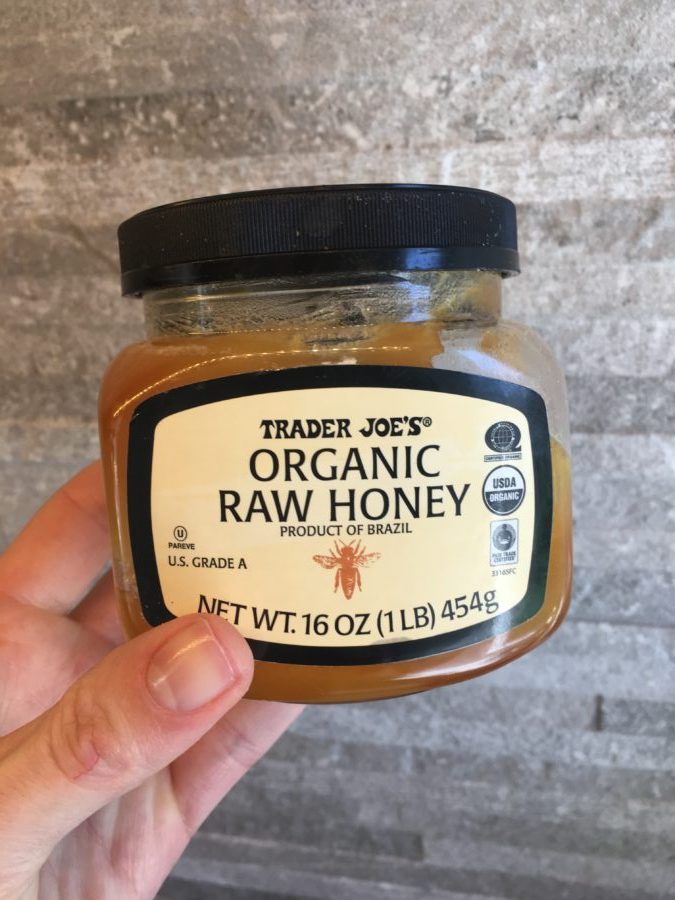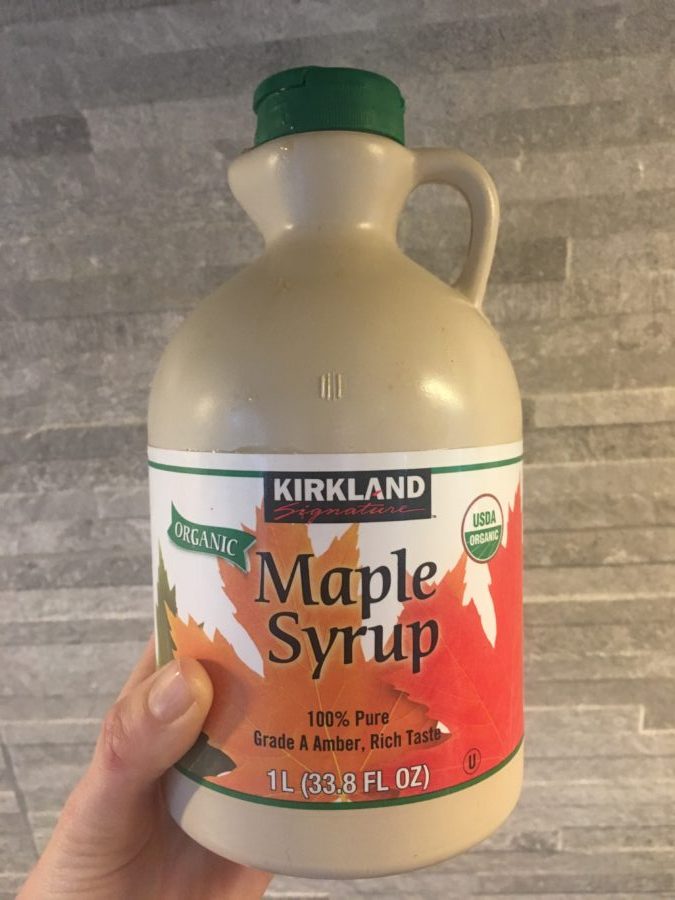 Last week I discussed natural vs. added sugar (unrefined and refined) read it here if you missed it. Today I felt it was important to also define artificial sweeteners and sugar alcohols.
Last week I discussed natural vs. added sugar (unrefined and refined) read it here if you missed it. Today I felt it was important to also define artificial sweeteners and sugar alcohols.
As consumers continue to be more aware of their sugar intake, the popularity of sugar substitutes continue to rise as well. Folks trying to avoid the extra caloric intake and/or hormonal response associated with unrefined and refined sugar options often turn to products that contain artificial sweeteners and/or sugar alcohols. These are both regulated by the FDA and found in many commercially packaged food and beverages.
Products that advertise “sugar free” or “diet” often contain these substitutes. It’s confusing because these products often market themselves as “natural” which sounds healthy enough…and they can do this because some artificial sweeteners are derived from naturally occurring substances. For example, sucralose (Splenda) comes from sugar. I put together the following list to help you identify what type of sugar or sugar alternative you’re reading on that ingredient list.
Unrefined Sugars: ex. agave nectar, barley malt syrup, brown rice syrup, coconut sugar, date paste or sugar, evaporated cane juice, honey, palm sugar, pure maple syrup (not pancake syrup), molasses, raw sugar (muscovado, turbinado, jaggery, Florida crystals), sucanat, sorghum syrup, yacon syrup
*considered natural sweeteners
Refined Sugars: ex.brown sugar, caramel, confectioners sugar, corn syrup, corn syrup solids, dextrin, dextrose, fructose, high fructose corn syrup or HFCS, invert sugar, maltodextrin, maltose, saccharose, sucrose, table sugar, pancake syrup, tagatose
*processed forms of sugar added to many commercial foods
Artificial Sweeteners: ex. aspartame (Nutrasweet and Equal), acesulfame-K (Sweet One, Sunett), neotame, saccharine (Sweet’N’Low), sucralose (Splenda), rebiana (Truvia and PureVia)
*”Artificial sweeteners are synthetic sugar substitutes, but may be derived from naturally occurring substances, including herbs or sugar itself. Artificial sweeteners are also known as intense sweeteners because they are many times sweeter than regular sugar.” (mayoclinic.org)
*Also may be called sugar substitutes, nonnutritive sweeteners (NNS), and noncaloric sweeteners.
Sugar Alcohols: ex. erythritol, glycol, glycerin, iditol, isomalt, lacitol, maltitol, mannitol, xylitol, sorbitol
*Typically found in processed foods- not at home use. Not as sweet as artificial sweeteners so often found in combination with artificial sweeteners in products.
Still with me? Let’s break it down and review the “pros” and “cons” to artificial sweeteners, sugar alcohols, and some of the most popular sugar substitutes you guys have asked me about.

ARTIFICIAL SWEETENERS
Pros: They are SO much sweeter than table sugar so you can use a smaller amount. Artificial sweeteners can also be helpful for diabetics trying manage blood sugars. Sorry the “pros” list is small here 🙂 Oh wait…it doesn’t cause cavities or tooth decay- there ya go artificial sweetener fans!
Cons: This article address a variety of reasons why there might be observed correlations between the intake of artificial sweeteners and many health concerns including weight gain and heart disease. There are new studies showing that high intakes of artificial sweeteners can actually cause a rise in blood glucose. This is a small study, but we will definitely be hearing more about this in the future.
My thoughts: Avoid if possible. While these are deemed “safe” by the FDA in moderate amounts I’m concerned about how they can alter the gut microbiota (I’m a big fan of protecting and enhancing gut health). Also since these sweeteners are very sweet but calorie free (sounds like a good thing right?) they are confusing to your body…some studies show that while it may help manage a “craving” in the moment you might overcompensate on sugar later because you’re body did not get the caloric reward and craves sugar even more. Not going to lie…I have an occasional diet coke (esp. if I’ve had one too many glasses of champs) so it’s all about moderation. I notice when I do consume it I’m usually hungry and unsatisfied the rest of the day. Not a good feeling.
SUGAR ALCOHOLS
Pros: Sugar alcohols can also be a helpful tool for diabetics managing blood sugars.
Cons: Unlike artificial sweeteners, sugar alcohols do contain calories (less than sugar though) and do raise blood sugar because they are carbohydrates. Since they aren’t fully absorbed their effects on blood glucose are less, but is also why people can experience some serious GI issues when they consume this stuff (esp. in larger quantities) Gas, bloating, tummy rumbles, and diarrhea…oh so fun!
My thoughts: AVOID! Ugh the laxative effect of sugar alcohol is no joke. I’ve had a handful of clients with tummy issues that were eating daily Quest bars or chewing a pack of gum a day, so we had to have the (sugar) alcohol talk 🙂 Yes, some people can tolerate more before experiencing GI symptoms, but for some only a few grams can cause serious issues. For a good laugh read these reviews of gummy bears that contain sugar alcohols.
AGAVE
Pros: Low on the glycemic index (meaning it does not spike blood sugars as much as other sweeteners) Agave is also sweeter than sugar, so theoretically you use less…riiiight
Cons: Because it comes from a plant in Mexico agave is often touted as a “healthy” and “natural” alternative to sugar, but it is usually highly processed into a syrup (agave nectar). This means it is a very concentrated source of fructose.
My thoughts: Absolutely AVOID! Agave is about 85% fructose (higher than sugar) and this goes straight to the liver for metabolism. When the liver gets overloaded it will turn the fructose into fat. (FYI do not avoid fruit because of fructose content because it also contains fiber and other nutrients you don’t want to miss out on!)
STEVIA
Pros: Calorie free sugar substitute and about 100-300 times sweeter than sugar so you can use less. Some studies like this one claim Stevia has potential health benefits for treating diabetes, hypertension, and obesity.
Cons: Many Stevia packages claim “all natural” and while Stevia is extracted from a plant, what you’re buying at the grocery store is much more than that. It is often mixed with sugar alcohols like erythritol, so be sure to read the ingredients so you don’t end up with an angry tummy. (Read the “cons” of sugar alcohols listed above if you skimmed over that part)
My thoughts: It appears to be safe, but use in moderation. Since it is still relatively new to the market, long term studies need to be conducted.

COCONUT SUGAR
Pros: It is low on the glycemic index and low in fructose (unlike agave) . Coconut sugar also offers some trace nutrients.
Cons: Calorically about the same as table sugar and it can be a little more $$.
My thoughts: I like to use coconut sugar for baking…it makes it slightly healthier and tastes good. Coconut sugar is NOT a nutritional superfood, so use in moderation.

HONEY
Pros: Raw (key word) honey is natural and made my bees (yay unprocessed!) It is also rich in vitamins and some minerals, contains antioxidants, and has antibacterial properties. Honey can be a great quick energy (carb) source for athletes.
Cons: Higher in calories and carbohydrates than most other sugar substitutes and higher on the glycemic index.
My thoughts: I <3 honey. Invest in a good quality, raw honey, and use in moderation.

MAPLE SYRUP
Pros: Lower fructose than honey and high in minerals like manganese and zinc . It also contains antioxidants and phytochemicals. It’s glycemic index is a little lower than table sugar too, and boy does it taste good on Sunday morning pancakes!
Cons: Calorically higher than many sugar substitutes.
My thoughts: Pure maple syrup is very different than your Aunt Jemima pancake syrup. Make the investment on a quality bottle and of course, use in moderation (which you probably will if you’re paying $20 for a bottle!)
The Bottom Line
If your goal here is to improve your overall health and/or weight management studies are not supporting that making the switch to artificial sweeteners is beneficial. Table sugar is processed and does not offer any nutritional benefits (but it does taste pretty darn good in this donut!)…but some options listed above do (coconut sugar, honey, and maple syrup). Either way now you have the facts and can make a decision that works best for you and no matter what you choose… balance and moderation are key!


Thank you for this post. So informative! I had been using agave and thinking I was so smart, lol. Then I bought Stevia (ew!). I really need to just make the switch from coffee with milk AND sugar to green tea 🙄 But this is good info for a number of reasons. I feed my kiddos unsweetened yogurt for the protein and use real organic maple syrup to sweeten it, but looked the other day and it said 54(!) grams of sugar so that freaked me out. I’ll just stick to honey, raw sugar, and pure maple syrup in moderation. Thanks again! XO
I’m so happy you found this post helpful Emily! I know it’s so confusing because so many of these products are touted as “healthy” and “natural” Yogurt is a sneaky one…so much sugar in all the flavored ones! I’m loving siggis yogurt tubes for my daughter.